Queen Elizabeth's death stirs calls in Caribbean for reparations, abolition of monarchy
The death of the UK's longest-reigning monarch and the subsequent coronation of her successor has rekindled the long-running debate about colonialism and how the British monarchy spawned systems of oppression and slavery worldwide.
While Queen Elizabeth II's death on Thursday led to an outpouring of grief in the West, it also revived the British monarchy's colonial legacy, with people across the world seeing her as a symbol of an institution that thrived through violence, oppression, and theft.
At its height about a century ago, Britain was the largest colonial power with its monarchy holding sway over 412 million people, or nearly one-fourth of the world population, in different corners of the globe from South Asia to Africa.
Queen Elizabeth II, who ruled over the United Kingdom for seven decades, died at the age of 96. Prince Charles succeeded to the throne immediately on the death of his mother but will be formally proclaimed the new monarch at an Accession Council on Saturday.
With the accession of King Charles III to the throne, it remains to be seen whether he will enjoy the same clout as his mother as the leader of the United Kingdom and the head of state of 14 other countries including Australia, Canada, and New Zealand.
Uju Anya, an associate professor at Carnegie Mellon University, in a tweet on Thursday afternoon denounced the British colonial legacy.
"If anyone expects me to express anything but disdain for the monarch who supervised a government that sponsored the genocide that massacred and displaced half my family and the consequences of which those alive today are still trying to overcome, you can keep wishing upon a star," she wrote.
If anyone expects me to express anything but disdain for the monarch who supervised a government that sponsored the genocide that massacred and displaced half my family and the consequences of which those alive today are still trying to overcome, you can keep wishing upon a star.
— Uju Anya (@UjuAnya) September 8, 2022
In an interview later on Thursday, Anya said she was "a child of colonization" as her mother was born in Trinidad and her father in Nigeria, who met in England in the 1950s as colonial subjects, married there and then moved to Nigeria together.
"In addition to the colonization on the side of Nigeria, there's also the human enslavement in the Caribbean," she said. "So there's a direct lineage that I have to not just people who were colonized, but also people who were enslaved by the British."
Zoé Samudzi, a Zimbabwean writer and an assistant professor at the Rhode Island School of Design, also took to Twitter to slam the British royal family.
“As the first generation of my family not born in a British colony, I would dance on the graves of every member of the royal family if given the opportunity, especially hers," she wrote.
As the first generation of my family not born in a British colony, I would dance on the graves of every member of the royal family if given the opportunity, especially hers. https://t.co/yeIQRSyCQM
— Zoé (@ztsamudzi) September 8, 2022
The succession of Charles has prompted strong reactions from politicians and activists in former British colonies in the Caribbean, who have called for the abolition of the British monarchy.
"As the role of the monarchy changes, we expect this can be an opportunity to advance discussions of reparations for our region," Niambi Hall-Campbell, an academic who chairs the Bahamas National Reparations Committee, was quoted as saying by Reuters on Thursday.
"Whoever will take over the position should be asked to allow the royal family to pay African people reparations," David Denny, general secretary of the Caribbean Movement for Peace and Integration, was quoted as saying.
"We should all work towards removing the royal family as head of state of our nations," he added.
Last year, Barbados, one of a dozen Caribbean nations which are Commonwealth members, ditched the British monarch as the head of state.
Jamaica, the Bahamas, Saint Kitts and Nevis, Saint Lucia, Saint Vincent, and the Grenadines and Grenada among the Caribbean islands still recognize the British monarch as their head-of-state.
But many former British colonies, most recently Barbados, have snapped their ties with the British crown over the years.
In March this year, a group of 100 Jamaican political activists published an open letter to Prince William, the incoming monarch’s eldest son, demanding reparations.
“We see no reason to celebrate 70 years of the ascension of your grandmother to the British throne because her leadership, and that of her predecessors, have perpetuated the greatest human rights tragedy in the history of humankind,” they wrote.
“During her 70 years on the throne, your grandmother has done nothing to redress and atone for the suffering of our ancestors that took place during her reign and/or during the entire period of British trafficking of Africans, enslavement, indentureship, and colonialization.”
VIDEO | Press TV's news headlines
July 26: ‘Axis of Resistance’ operations against Israeli occupation
Palestinian resistance fighters hit Israeli Merkava 4 tanks
VIDEO | UK police brutal assault on Muslim family sparks outrage, protests
Hamas: Death of leader in Israeli jail amounts to murder
EU sends €1.5 billion to Ukraine from frozen Russian assets
VIDEO | Millions of Yemenis rally for Gaza, call for more anti-Israel operations
UN chief calls for Olympic truce as games begin in Paris


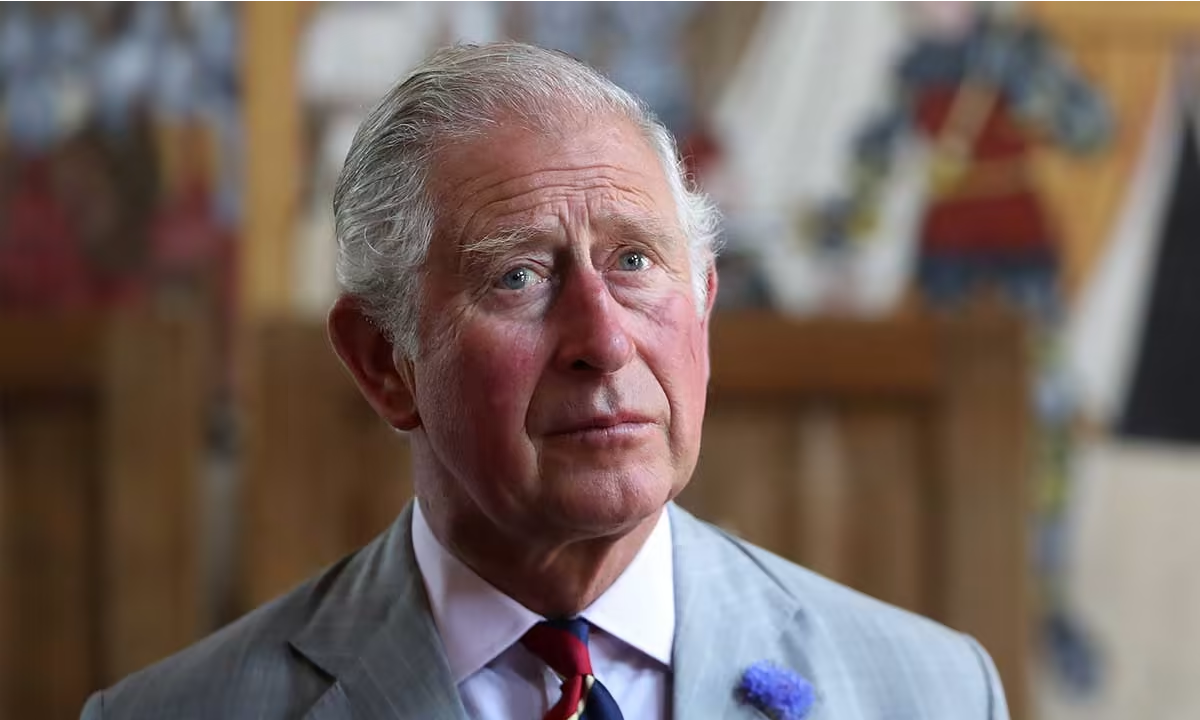
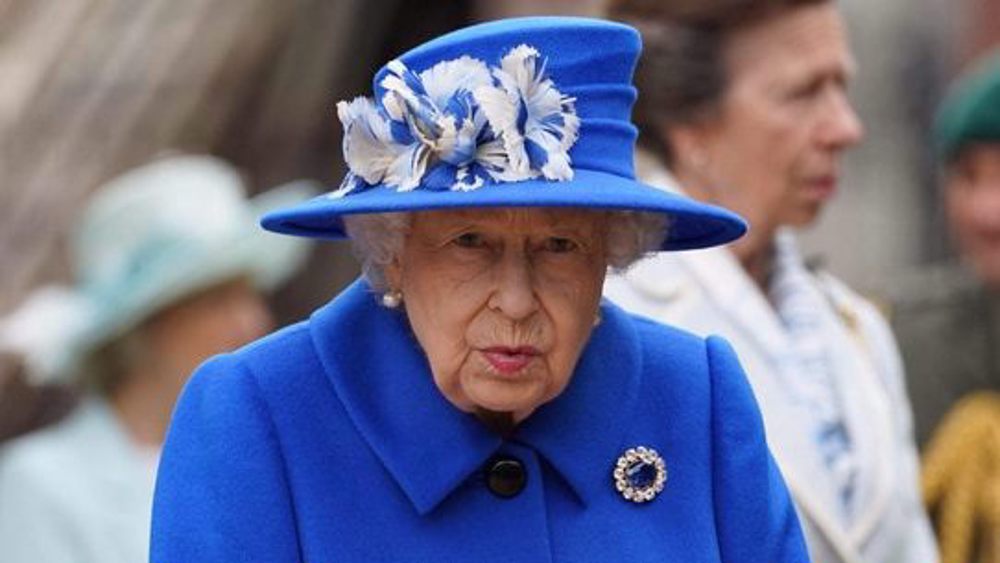
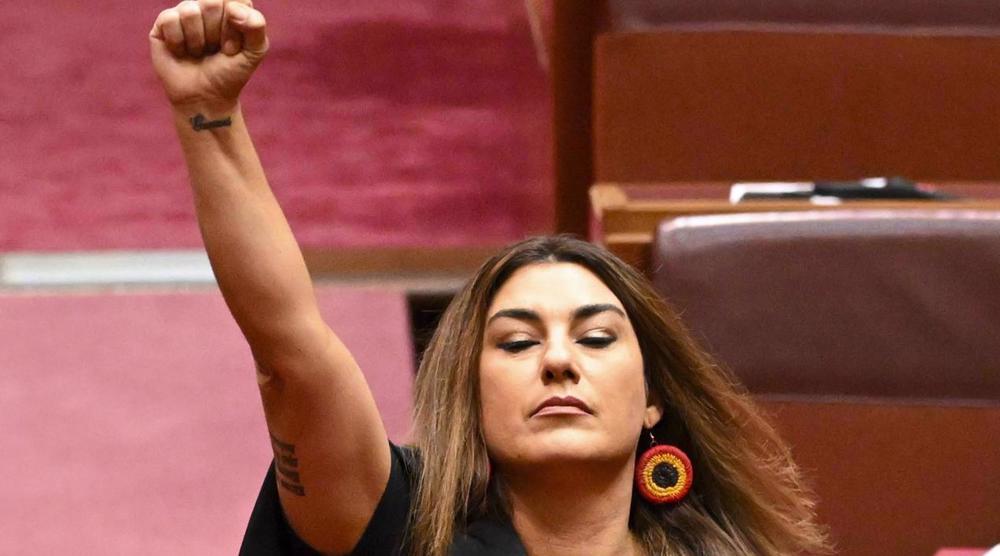
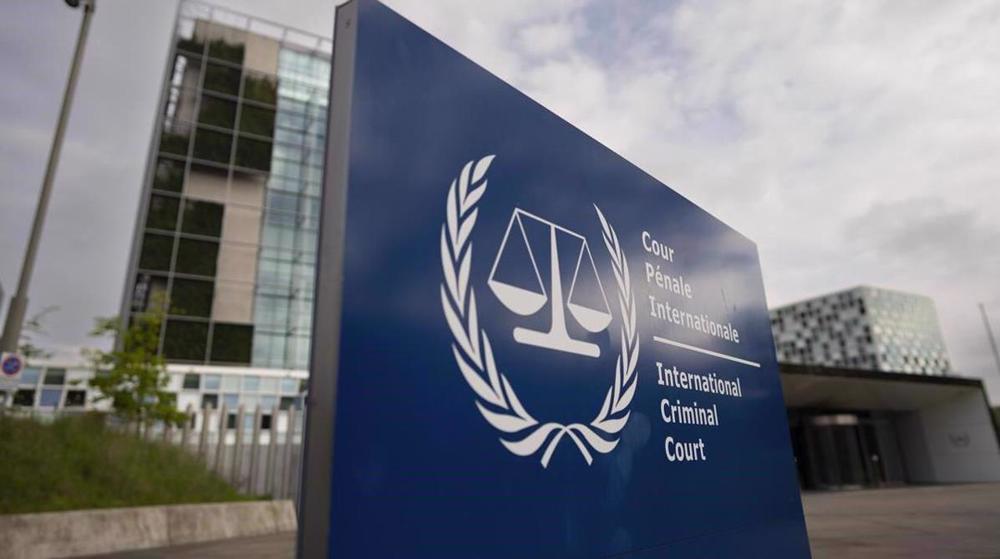
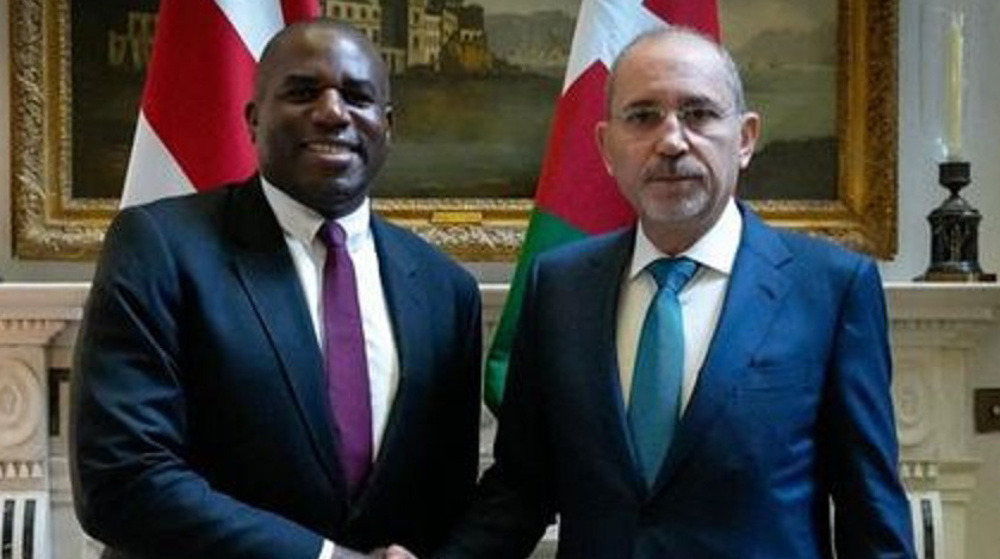
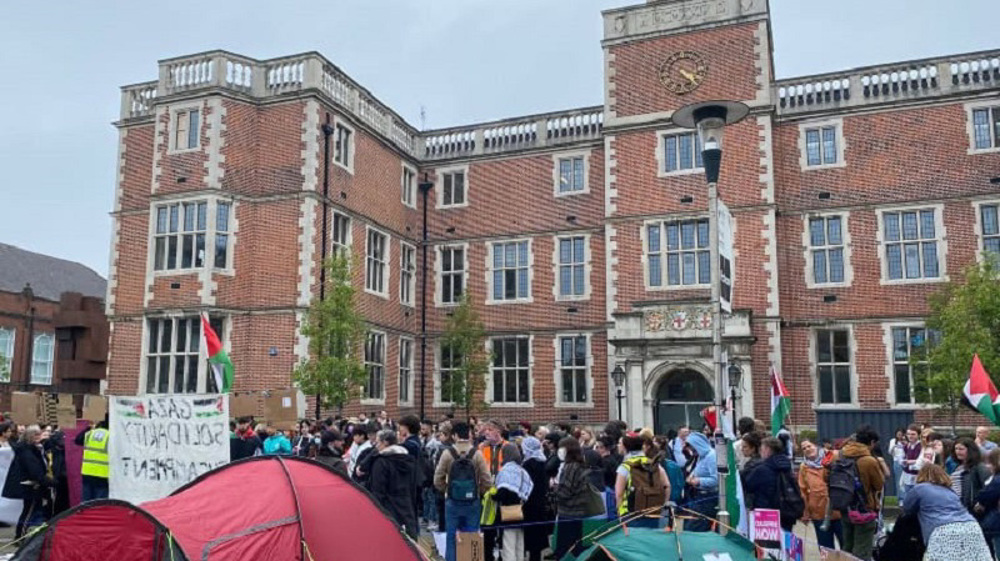



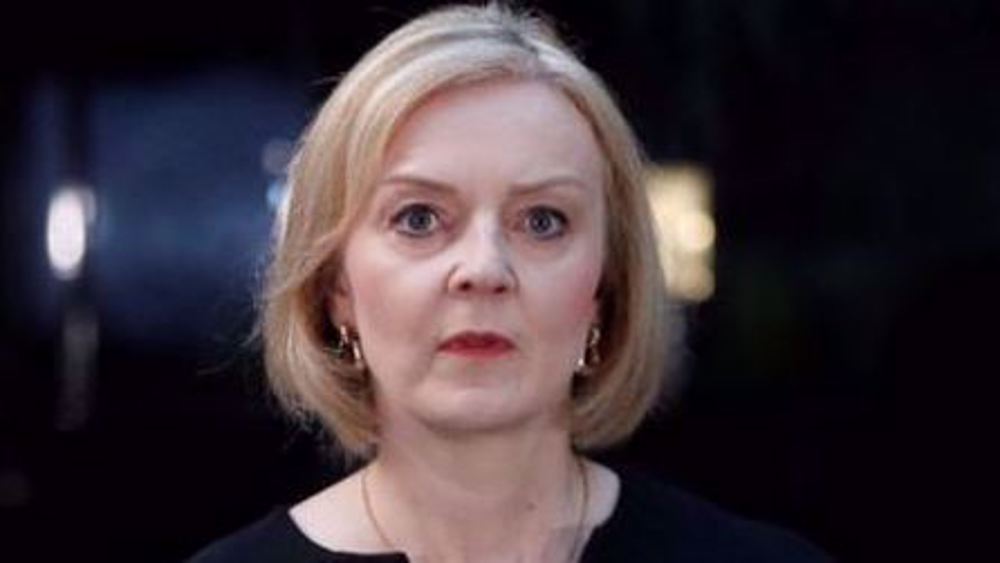
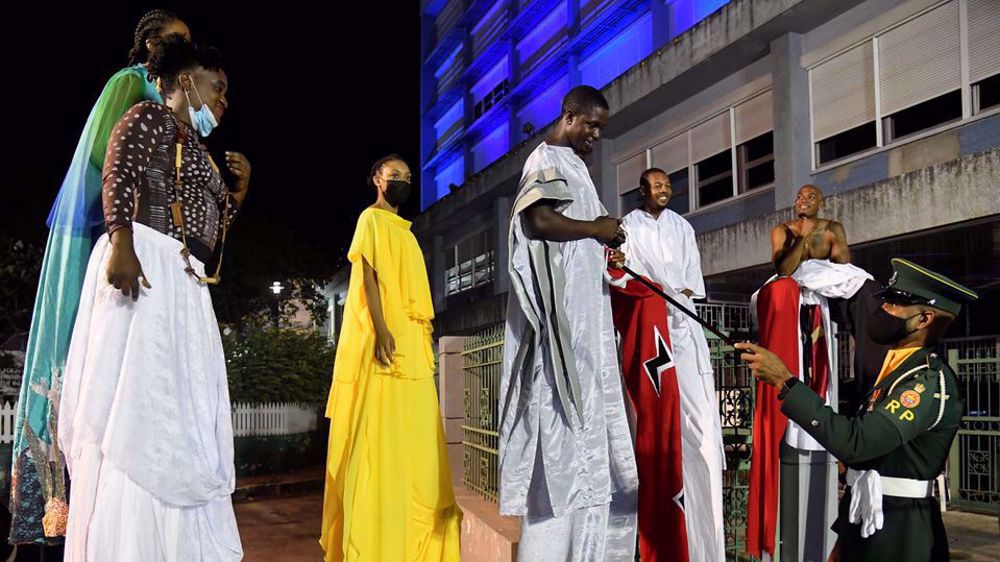
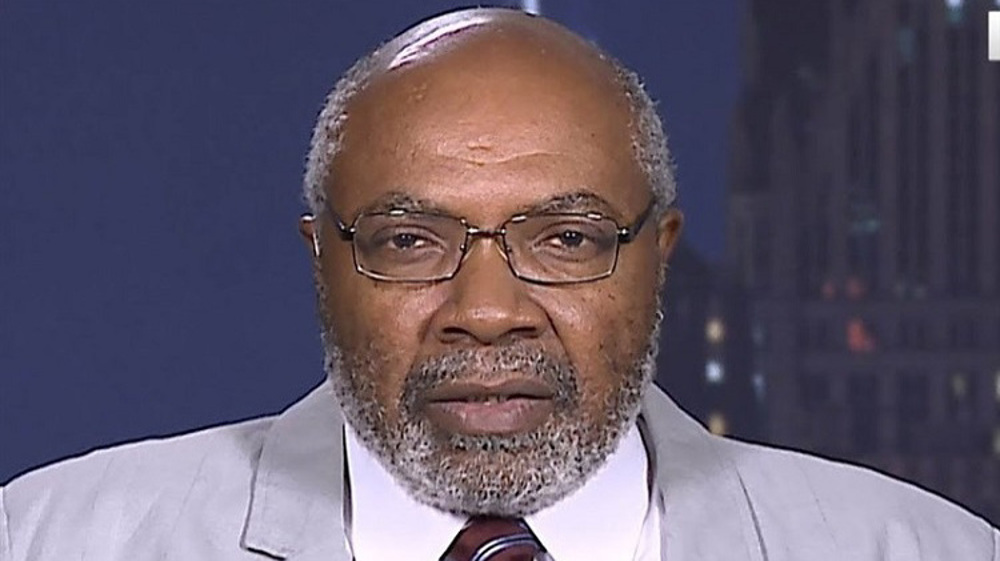


 This makes it easy to access the Press TV website
This makes it easy to access the Press TV website